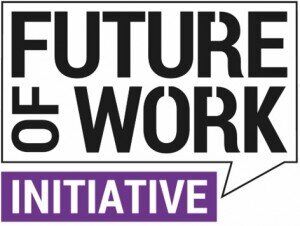Markus Herkersdorf is a founding member
The initiative “Future of Work” was founded with the start of the fair Zukunft Personal Europe 2019. The founding members are spring Messemanagement, Markus Herkersdorf the Managing Director of TriCAT, Design Offices, Detecon, Haufe and IBM. The aim of Future of Work is to develop practical instructions with a realistic view of tomorrow’s world of work.
In the presence of Federal Labour Minister Hubertus Heil, the initiative was officially launched at Zukunft Personal Europe. “A lot is said and written about Future of Work. The gap that we want to close is the realistic view of the concept and the communication of solid recommendations for action, especially against the background of the cooling overall economic situation”, explains Ralf Hocke, co-founder and current spokesman of the initiative and CEO of spring Messe Management.
Every company and every workplace is affected by transformation
“The initiators share the conviction that the implementation of Future of Work is an essential contribution to securing the future of companies that have to react ever faster to changing customer needs in a complex and uncertain world,” Hocke continued. Every company and every workplace is affected by the transformation. All the more important is a participative management culture and digital employability, for which the qualification of employees is elementary. At the same time, Hocke pointed out that the answer was individual for each company.
Shaping the working world of the future is a task for society as a whole.
Federal Labour Minister Hubertus Heil therefore particularly welcomed the initiative’s approach of combining scientific findings with entrepreneurial practice: “The shaping of the world of work is a joint task for politics, business, science and society, which goes hand in hand with many opportunities, but also critical questions. Both must be discussed courageously and with commitment and incorporated into practical options for action,” said Heil.
“The return to classic models and structures will not be successful in an economic crisis.”
As a first project, the initiative commissioned a qualitative study that examines the significance of Future of Work against the background of an emerging economic downturn. On the basis of ten interviews with experts from the HR scene, Prof. Stephan Fischer, Dean of Human Resources Management and Director of the Institute for Human Resources Research at the University of Applied Sciences Pforzheim, sums up a key finding: “The return to classic models and structures will not be successful in an economic crisis. Instead, the overall concept of the Future of Work will become more relevant in times of economic downturn, taking various conditions into account.” Prof. Fischer added that whether companies can successfully adapt to Future of Work depends crucially on their leadership and corporate culture: “Especially models that propagate cooperation at eye level will be successful here.
Development of a concrete manifesto for the implementation of Future of Work
In addition to the scientific study, the founding members have developed 10 theses with practical instructions for the implementation of Future of Work, which will be discussed over the next twelve months in various interactive formats, including at the Digital Mind Change conference (24 October 2019, BMW Welt Munich) and the Zukunft Personal Series in Hamburg, Stuttgart and Cologne. Key messages of the document: A corporate culture that enables permanent learning and focuses on the development of employees is indispensable for the future viability of companies. Just like a fundamental positive attitude towards technological innovations such as artificial intelligence and robotics.
The theses can be viewed and commented on on on the website https://newmanagement.haufe.de/organisation/10-thesen-zur-zukunft-der-arbeit . The aim is to present a manifesto on the implementation of Future of Work in autumn 2020.


